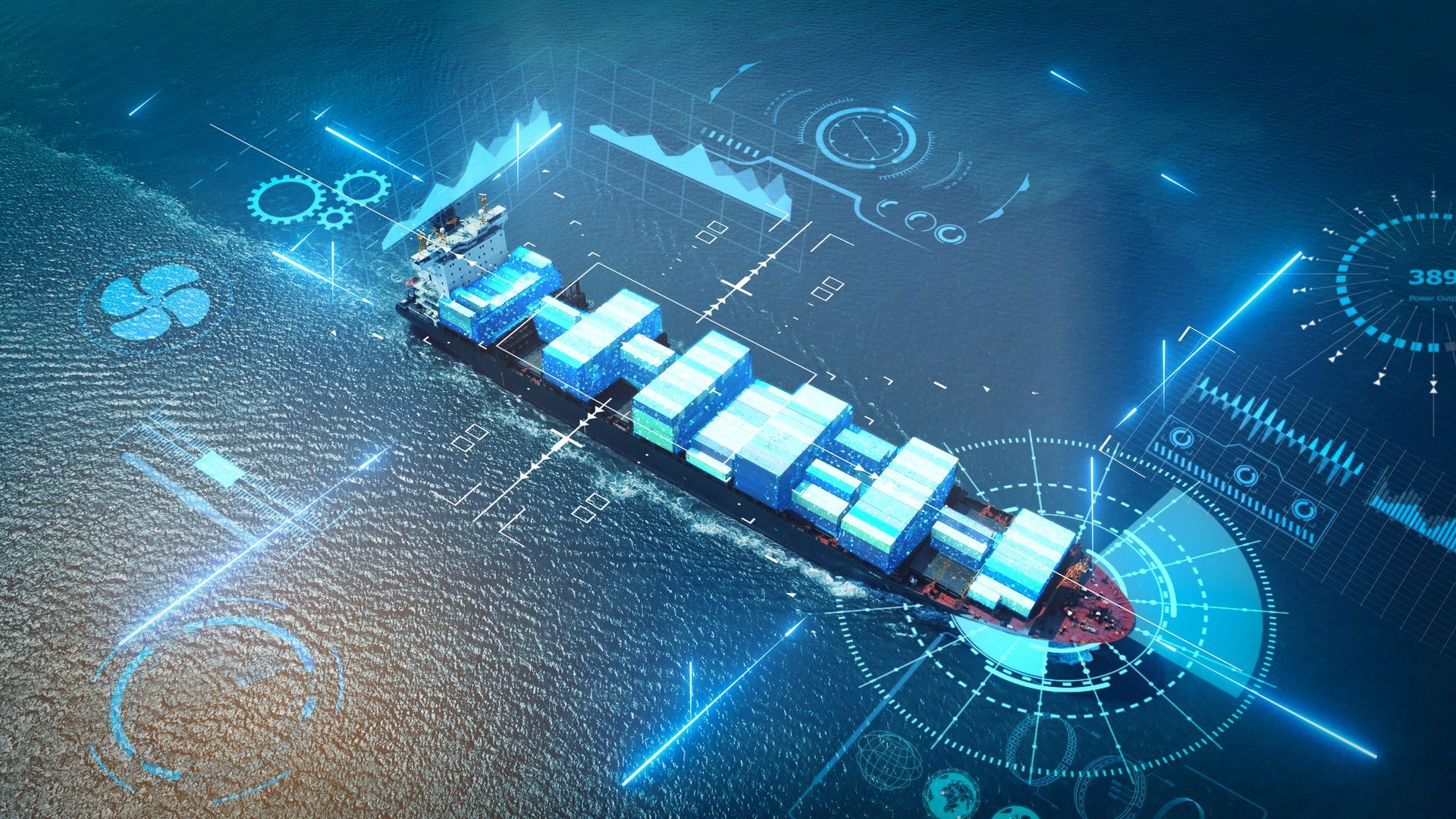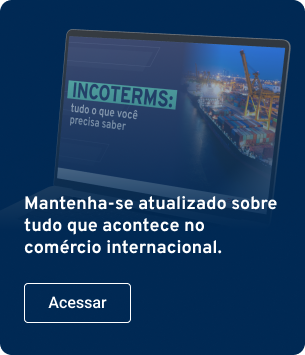Stay up to date with the latest news and articles from the world of logistics
Discover how Allink is transforming the logistics landscape by checking out the knowledge shared by our team of experts below.

Customs brokers are essential professionals in international trade, acting as intermediaries between companies and government agencies responsible for customs control. They represent importers, exporters, and other stakeholders in international trade operations, ensuring that all stages of the process comply with current regulations. Their role ranges from declaring imports and exports in systems such as Siscomex and the Single Window to applying for licenses from regulatory bodies like ANVISA, INMETRO, and MAPA. The Importance of a Customs Broker Goes Beyond Legal Representation They are responsible for ensuring that international trade operations are conducted safely, efficiently, and legally. This includes verifying documents, classifying goods for tax purposes, calculating taxes, and overseeing the entire customs clearance process. In a country like Brazil, where bureaucracy is significant, these professionals play a crucial role in preventing fines, delays, and other setbacks that could negatively impact import and export operations. The Role of an NVOCC in International Trade The NVOCC (Non-Vessel Operating Common Carrier) is becoming an increasingly relevant player in international trade, especially in maritime cargo transportation. Unlike traditional shipping companies, the NVOCC does not own vessels but acts as a cargo consolidator, offering logistics services that include grouping shipments from different clients into a single container. This method, known as LCL (Less than Container Load), is particularly advantageous for businesses importing or exporting small quantities of goods, as it helps reduce costs and optimize container space. The NVOCC serves as an intermediary between clients and shipping companies, managing the entire transportation process, from cargo collection in the country of origin to final delivery. This includes container stuffing, transshipment at intermediate ports, cargo deconsolidation, and final delivery to customers. Additionally, the NVOCC is responsible for all the necessary documentation for international transport, ensuring compliance with regulations in each country involved in the operation. Benefits of an NVOCC for Customs Brokers The partnership between customs brokers and NVOCCs can bring numerous benefits to both parties, particularly in terms of efficiency and cost reduction in foreign trade operations. For customs brokers, the NVOCC provides support in complex processes such as cargo consolidation and document management, allowing them to focus on their core responsibilities, such as tax classification and customs clearance monitoring. One of the main advantages of this partnership is cost reduction for customs brokers' clients. By consolidating shipments from different companies into a single container, the NVOCC enables shared freight costs, making maritime transport a more affordable option for small and medium-sized importers. Furthermore, the NVOCC handles all logistics, including stuffing and deconsolidation of cargo, which reduces the workload for customs brokers and speeds up the customs clearance process. The NVOCC is also responsible for all necessary documentation for international transport, including issuing Bills of Lading (B/L). Why Invest in Strategic Partnerships with NVOCCs? Investing in strategic partnerships with NVOCCs can be a competitive advantage for customs brokers, especially in an increasingly globalized and competitive market. Collaboration between these two entities creates a more efficient and integrated logistics chain, where each party contributes its expertise to ensure the success of international trade operations. One of the key benefits of this partnership is time optimization. With the NVOCC managing transportation logistics and documentation, customs brokers can focus on their primary activities, such as tax classification and customs clearance monitoring. This not only increases process efficiency but also allows brokers to serve more clients, boosting their profitability. Additionally, partnering with an NVOCC enhances the security and reliability of operations. The NVOCC ensures that goods are transported safely and in compliance with international regulations, reducing the risk of damage, theft, and other issues that could negatively impact foreign trade operations. This is particularly important in a landscape where cargo security is a constant concern for importers and exporters. Finally, partnering with an NVOCC can provide a competitive edge for customs brokers. By offering a more comprehensive and integrated service, brokers can differentiate themselves in the market, attract more clients, and strengthen their reputation as reliable and efficient professionals. This is especially relevant in a market where service quality is a decisive factor in choosing a customs broker. Conclusion The partnership between customs brokers and NVOCCs is a powerful strategy to optimize foreign trade operations, reduce costs, and increase efficiency. By combining the customs expertise of brokers with the logistics capabilities of NVOCCs, a more integrated and efficient supply chain can be created, benefiting both professionals and their clients. If you are a customs broker or a freight forwarder, consider investing in strategic partnerships with NVOCCs to elevate your service quality and stand out in the market.
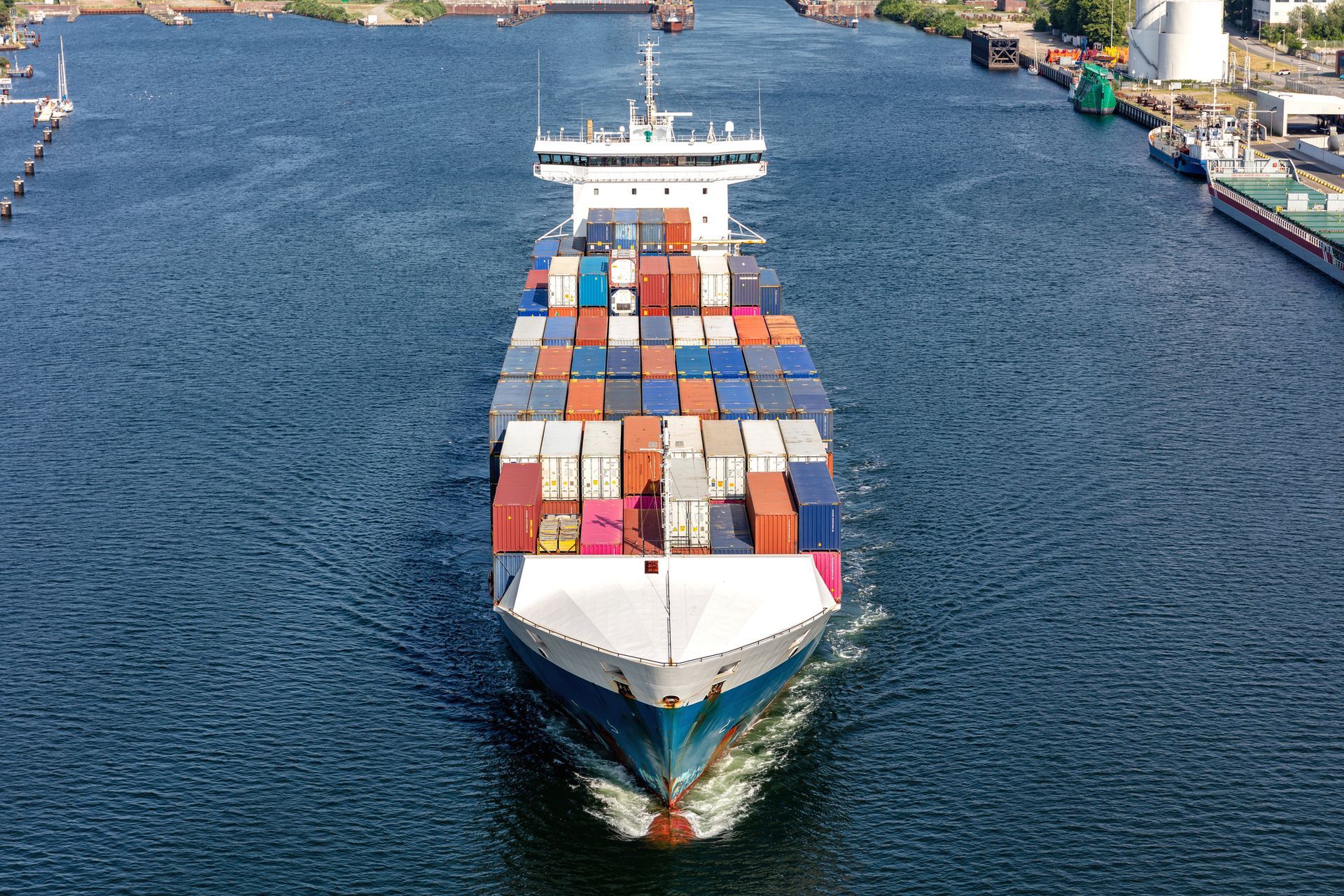
In the global maritime transport landscape, the ECA Reg Surcharge (or Emission Control Area Regulation Surcharge ) has gained prominence as one of the main factors affecting logistics costs. With growing concerns about the environment and public health, the International Maritime Organization (IMO) has established stricter regulations to control pollutant emissions from ships. These regulations, applied in specific areas known as ECAs (Emission Control Areas) , have resulted in the creation of a surcharge that directly affects maritime transport operations. In this article, we will explore what the ECA Reg Surcharge is, why it is charged, and how it impacts logistics operations, especially for freight forwarders and customs brokers. What is the ECA Reg Surcharge? The ECA Reg Surcharge is a fee applied by shipping lines to cover additional costs associated with emission control regulations in designated ECAs . These areas are established by the IMO and have stricter restrictions on the emissions of sulfur oxides (SOx) , nitrogen oxides (NOx) , and other particles from vessels. The surcharge is a way to compensate for the high operating costs in these areas, which require the use of low-sulfur fuels or the installation of emission reduction equipment . The ECA Reg Surcharge is a direct reflection of the global shift towards more sustainable practices in maritime transport. With the implementation of IMO 2020 , which reduced the sulfur limit in fuel from 3.5% to 0.5% , shipping companies had to adapt quickly, leading to additional costs that are passed on to customers through this surcharge. Key Information About ECAs ECAs are specific areas where emission regulations are stricter. Currently, there are three main ECAs: The North Sea The Baltic Sea The North American ECA Each of these areas has distinct geographical and regulatory characteristics, but they all share the goal of reducing air pollution from ships. The North Sea includes the North Sea and adjacent parts of the Atlantic Ocean , covering busy maritime routes between the UK, mainland Europe, and Scandinavia . The Baltic Sea encompasses the entire Baltic region , including countries such as Sweden, Finland, Germany, Denmark, and Poland . The North American ECA covers coastal areas up to 200 nautical miles off the east and west coasts of the US and Canada . These areas were selected due to high maritime traffic and proximity to coastal populations , where the impact of pollutant emissions is more significant. The enforcement of stricter regulations in these areas aims to protect public health and the environment but also leads to higher costs for shipping companies . Why Is the Surcharge Applied? The ECA Reg Surcharge is charged to compensate for the additional costs that shipping companies incur when operating within ECAs . These costs are directly related to the requirement to use low-sulfur fuels or to install emission reduction equipment , such as exhaust gas cleaning systems (scrubbers) . Low-sulfur fuel, such as Marine Gas Oil (MGO) , is significantly more expensive than Heavy Fuel Oil (HFO) , which has traditionally been used in ships. Additionally, the installation of scrubbers requires high initial investments and ongoing maintenance , further increasing operational costs. IMO 2020 brought a major shift by reducing the sulfur content in fuel from 3.5% to 0.5% . This change was implemented to reduce sulfur oxide emissions , which are harmful to human health and the environment. However, the transition to cleaner fuels and the installation of emission reduction equipment have led to higher costs , which are passed on to customers through the ECA Reg Surcharge . How the Surcharge Impacts Shipments and Logistics Operations The ECA Reg Surcharge has a significant impact on logistics operations , especially for freight forwarders and customs brokers . Since this surcharge is applied to routes passing through ECAs , transport costs can vary depending on the chosen route . This requires freight forwarders and brokers to carefully analyze routes and applicable regulations to correctly calculate shipping costs. Companies that invest in emission reduction technologies , such as scrubbers , may gain a competitive advantage as they can continue using HFO , which is cheaper, while others must use more expensive fuels like MGO . This cost difference can influence customer decisions when selecting a shipping company. Another key impact of the ECA Reg Surcharge is the need for more detailed logistics planning . Companies must consider not only the direct costs of the surcharge but also potential delays and additional costs related to installing emission reduction equipment or switching to cleaner fuels . This can result in an overall increase in logistics costs , which must be efficiently managed to maintain market competitiveness . Conclusion The ECA Reg Surcharge is now a reality in maritime transport, reflecting the global shift toward sustainable practices and stricter regulations . For freight forwarders and customs brokers , understanding the impact of this surcharge is essential to ensuring efficient and competitive logistics operations . The ECA Reg Surcharge not only affects shipping costs but also requires detailed logistics planning and a deep understanding of applicable regulations . As the maritime transport sector continues to evolve in response to environmental and regulatory pressures , logistics professionals must be prepared to handle the challenges and opportunities ahead . The ECA Reg Surcharge is just one example of how global changes are shaping the future of maritime transport . Check out our freight quotation checklist to ensure your shipping operations align with industry best practices .

LCL (Less than Container Load) cargo consolidation is a key logistics strategy for freight forwarders and brokers looking to reduce costs, optimize resources, and promote sustainable practices in maritime transport. This practice involves grouping goods from different companies into the same container, maximizing efficiency while minimizing expenses. This article explores how to implement this method effectively, alongside its benefits and challenges. What is LCL Cargo Consolidation? LCL cargo consolidation allows different companies to share space in the same shipping container, managed by NVOCCs (Non-Vessel Operating Common Carriers). The primary appeal of this model is cost savings, as expenses are shared among participants based on the space occupied. However, it’s not a one-size-fits-all solution; fragile, perishable, or specialized cargo may not be compatible with this method. Can Any Cargo Be Shipped via LCL? Not all cargo is suitable for LCL shipping. Some goods have sanitary restrictions, are too fragile, or require refrigeration. Understanding the cargo and its requirements is essential, as it will share container space with other goods. Partnering with an experienced NVOCC can help identify the best options for your business and ensure a smooth process. Benefits of LCL Consolidation in Imports Cost Reduction LCL consolidation significantly lowers shipping costs by splitting transportation expenses among companies sharing the container. Shorter Wait Times For importers with smaller shipments, LCL reduces the need to accumulate large cargo volumes or over-purchase just to fill a container. By paying only for the space used, smaller shipments become financially viable, also reducing excess inventory. Environmental Impact Reduction LCL consolidation promotes sustainability by reducing the number of containers shipped and associated carbon emissions. How to Optimize LCL Consolidation Know Your Cargo Evaluate the product’s characteristics and shipping requirements. Incompatible goods may compromise the consolidation. Plan Dimensions and Weight Provide accurate dimensions and weights to avoid delays or additional costs. Choose the Right LCL Service Opt for direct services to minimize transit time and handling, reducing risks of damage. Assess Loading/Unloading Terminals Ensure the terminal chosen by the NVOCC has suitable facilities for container handling. Regularly Monitor Performance Review service providers periodically to identify improvements and avoid recurring issues. Challenges and How to Overcome Them 1. Customs Retention and Supply Chain Delays If one shipper fails to meet regulatory requirements, the entire container may be delayed. Mitigation Ensure all documentation is complete and accurate before shipment. Work with experienced freight agents and NVOCCs. 2. Risk of Damage or Loss Sharing space increases the risk of damage from poorly packaged or incompatible cargo. Mitigation Invest in proper packaging and coordinate with the NVOCC to ensure compatible storage conditions. 3. Coordination and Communication Effective communication between shippers, logistics operators, and recipients is crucial to avoid delays or unexpected costs. Mitigation Choose reputable NVOCCs with their own services and reliable processes. Conclusion LCL cargo consolidation is a strategic solution for companies aiming to reduce costs, optimize logistics, and promote sustainability. With proper planning, reliable partners, and continuous monitoring, LCL can transform logistics into a more efficient and competitive process.
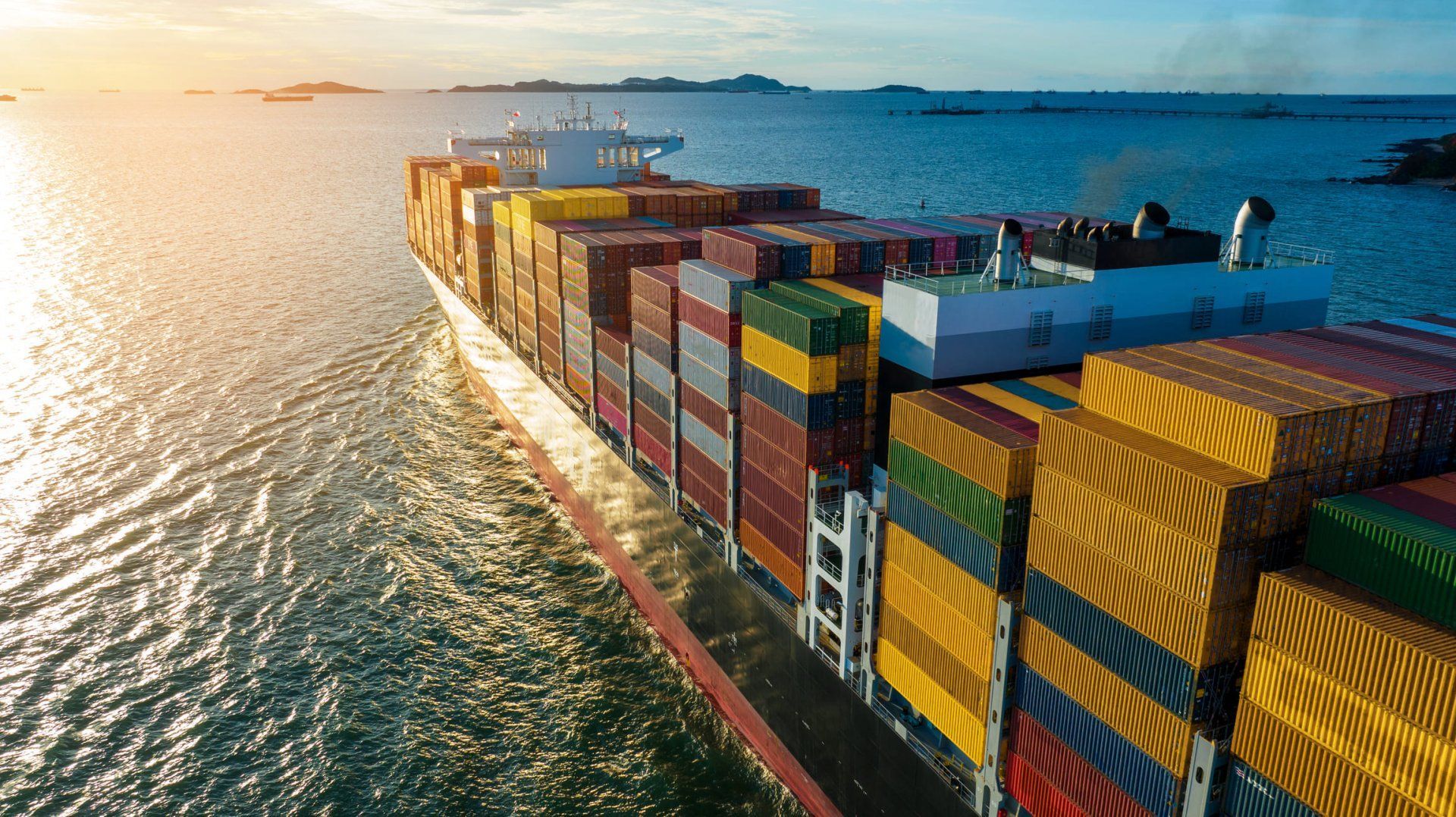
In the complex international logistics network, choosing the right NVOCC can be the difference between an efficient operation and a series of challenges. It’s like putting together a complex jigsaw puzzle, where each piece needs to fit together perfectly to ensure the success of the operation. In this article, we’ll explore the essential aspects to consider when selecting the ideal logistics partner for your business needs. How to choose the ideal NVOCC Experience and reputation When choosing an NVOCC, it is crucial to look for a company with extensive experience in the market and a solid reputation. After all, carrying out your international transport operations with a reliable partner is essential to ensure the success and efficiency of your business transactions. Choosing an NVOCC with proven experience and a well-established reputation means having the peace of mind that your LCL cargo will be managed by qualified professionals who understand the challenges and nuances of LCL maritime transport. Therefore, when evaluating different NVOCC options, take into account the track record and reputation of each company in the market, thus ensuring a solid and secure partnership for your logistics needs. Allink, with its 30 years of experience in the sector, stands out as a reliable and secure choice. Recognized by the market for its transparency and, above all, for its commitment to all processes. LCL cargo consolidation capacity Another key aspect in choosing the right NVOCC is to assess its LCL cargo consolidation capabilities. A company that is competent in this regard is able to maintain its weekly services and handle all the logistics for LCL cargo. This not only maximizes transportation efficiency but also reduces operational costs for each client involved. An NVOCC that is efficient in cargo consolidation demonstrates its ability to handle varying volumes and coordinate different shipments strategically. This capability not only provides significant economies of scale but also ensures an equitable distribution of transportation costs among clients, making the service more affordable and advantageous for all involved. Therefore, when selecting an NVOCC, be sure to check its competence in consolidating cargo efficiently, thus ensuring more effective and cost-effective logistics for your business operations. Expertise em regulamentações e documentação Certificar-se de que o NVOCC possui expertise em regulamentações e documentações voltadas ao transporte marítimo LCL é fundamental para garantir conformidade e evitar contratempos alfandegários. Uma empresa que domina as complexidades das regulamentações de transporte e está atualizada com as exigências documentais pode garantir que todas as etapas do processo de transporte ocorram sem problemas. A habilidade do NVOCC em lidar com uma variedade de regulamentações, desde requisitos de transporte na importação e exportação até normas de segurança e conformidade, é essencial para garantir que as mercadorias sejam transportadas de forma legal e eficiente. Portanto, ao escolher um NVOCC, é importante verificar sua expertise em regulamentações e documentação, garantindo assim uma operação de transporte internacional livre de complicações legais e alfandegárias. Cobertura geográfica e parcerias estratégicas Verificar a abrangência geográfica e as parcerias estratégicas do NVOCC é essencial para garantir acesso a diversos destinos e origens. Uma extensa rede de operações e parcerias sólidas com companhias de navegação em todo o mundo podem significar a diferença entre uma logística eficiente e restrições geográficas. Um NVOCC com uma ampla cobertura geográfica pode oferecer mais opções de rotas e destinos, adaptando-se melhor às necessidades específicas de cada cliente. Além disso, parcerias estratégicas com agentes locais em diferentes países garantem suporte local e conhecimento especializado em cada mercado, facilitando o processo de transporte.. Portanto, ao escolher um NVOCC, é importante avaliar sua cobertura geográfica e suas parcerias estratégicas, garantindo assim uma logística internacional eficiente e abrangente. Flexibilidade e adaptabilidade operacional Priorizar um NVOCC com flexibilidade e adaptabilidade operacional é crucial para lidar com as demandas de um mercado em constante mudança. A capacidade de se ajustar rapidamente às flutuações na demanda, condições climáticas imprevistas, mudanças regulatórias e outros desafios é essencial para garantir uma operação logística eficiente e sem contratempos. Um NVOCC flexível pode oferecer soluções personalizadas para atender às necessidades específicas de cada cliente, seja ajustando rotas de transporte, ou fornecendo alternativas criativas para superar obstáculos inesperados. Além disso, a adaptabilidade operacional permite uma resposta rápida a eventos imprevistos, minimizando o impacto nas operações e mantendo o fluxo de mercadorias sem interrupções. Portanto, ao escolher um NVOCC, é fundamental considerar sua flexibilidade e adaptabilidade operacional, pois essas qualidades são essenciais para garantir uma logística eficiente e resiliente em um ambiente comercial dinâmico e desafiador. Transparency and communication When selecting an NVOCC, it is essential to choose a company that values transparency and maintains effective communication throughout all stages of the logistics operation. Transparency ensures that all relevant information is shared in a clear and accessible manner, allowing for a complete understanding of the processes and procedures involved. Effective communication is essential to keep all parties involved informed about the status of the shipment, any delays or issues, and any other important issues that may arise throughout the process. This helps to avoid misunderstandings, allows for a quick response to unforeseen situations, and promotes customer trust and satisfaction. Therefore, when choosing an NVOCC, it is crucial to look for a company that prioritizes transparency in its operations and maintains open lines of communication with its customers and partners, ensuring efficient collaboration and a positive logistics experience across the board. Customer Support Evaluating the customer support provided by the NVOCC is crucial to ensuring a smooth and efficient logistics experience. It is essential to choose a company that offers dedicated and personalized support that can meet the specific needs of each customer. Good customer support is not limited to answering questions or resolving issues, but also involves providing proactive guidance, offering personalized solutions, and being available to assist at every stage of the logistics operation. When choosing an NVOCC, it is important to look for a company that values customer relationships and is committed to providing exceptional support, ensuring that your needs are met quickly, efficiently, and satisfactorily. Technology and innovation Analyzing the technology and innovation implemented by the NVOCC is essential to ensure efficiency and safety in its logistics operations. An NVOCC that invests in technology and innovative solutions is able to offer a more agile, accurate and reliable logistics experience to its customers. The integration of transportation management systems, online platforms and other technological tools can optimize the flow of information, increase supply chain visibility and reduce the risk of errors or delays. Therefore, when choosing an NVOCC, it is important to evaluate its technological infrastructure and its commitment to innovation, looking for partners that are at the forefront of technological solutions in the logistics sector. This ensures not only efficient operations in the present, but also paves the way to face the challenges and seize the opportunities of the future. Risk and contingency assessment Ensuring that the NVOCC has undertaken a comprehensive risk assessment and has contingency plans in place is crucial when choosing a logistics partner. International transport is subject to a range of risks, including transport delays, cargo damage and unforeseen weather events. A prepared and proactive NVOCC should be able to identify and assess these potential risks, implementing effective preventative measures and contingency plans. This includes having clear procedures in place to deal with emergencies such as accidents during transport, strikes or disruptions to shipping routes. When evaluating an NVOCC, it is essential to ask about their risk and contingency management policies, as well as their past experience in dealing with adverse situations. Choosing a partner with a proactive approach to risk mitigation provides peace of mind and security for your international logistics operations. Other fundamental elements When choosing an NVOCC, it is essential to prioritize those with a strong commitment to sustainability. This includes implementing green practices to reduce the environmental impact of logistics operations, such as using cleaner and more efficient technologies, optimizing routes to reduce carbon emissions, and investing in environmental offsetting initiatives. In addition to considering the rates offered by the NVOCC, it is crucial to evaluate the total costs involved in its operations. This includes not only direct transportation costs, but also operational costs such as additional fees, storage, and cargo handling. In addition, consider the added benefits, such as operational efficiency, reliability, and quality of service provided. Finally, verifying that the NVOCC complies with international trade rules and regulations is essential to ensure quality and safety standards in its operations. Meet Allink Allink stands out as a neutral provider of consolidated LCL and FCL cargo transportation services. With a 30-year history, the company is recognized for its transparency and commitment in all processes, being one of the leading companies in LCL cargo transportation. Part of the renowned Wilson Sons Group, with over 180 years of history, Allink stands out for its neutrality in the segments in which it operates, being a reliable partner for freight forwarders and customs brokers.
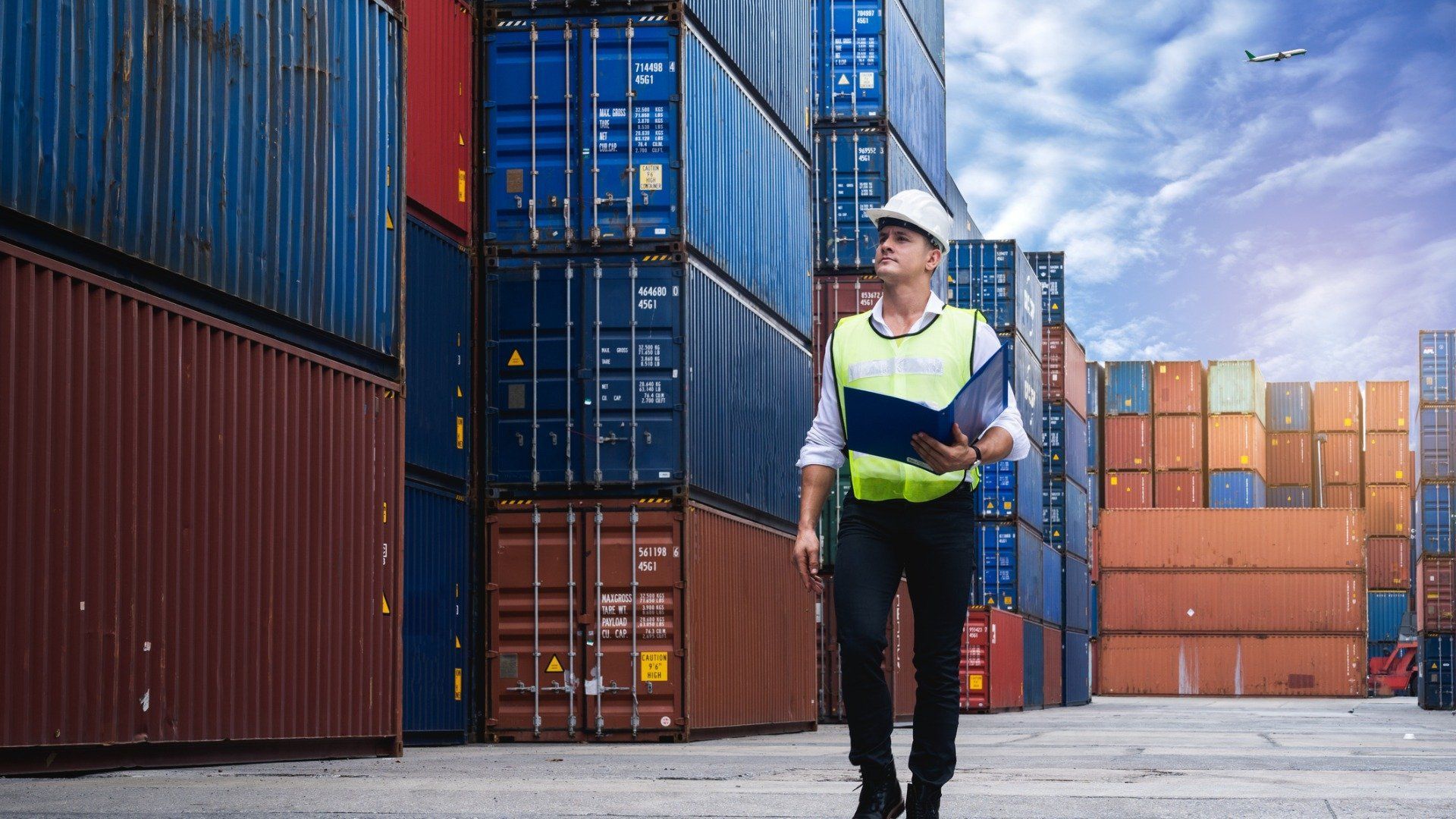
LCL is an acronym for Less Container Load, which consists of a container-sharing strategy for companies that need to import or export. In the world of freight transport, understanding the ins and outs of LCL freight is crucial to avoiding pitfalls and optimizing resources. In this article, we'll dive into the five common mistakes that can jeopardize the success of your LCL shipment, from calculating freight rates to the strategic choice of modes. Ready to improve your logistics practices? What is LCL freight? Unlike FCL, LCL defines an intelligent and efficient practice in the world of freight transportation. When a company does not have enough cargo to fully occupy a container, it adopts the LCL modality, consolidating its smaller cargo with other shipments. In this context, by opting for LCL freight, the company ensures that the container destined for its shipment shares space with several other loads from different companies. This sharing not only optimizes the use of space, but also results in more affordable sea freight, since the costs are shared between the participating companies. How LCL freight is calculated The value of LCL freight is calculated by the gross weight of the goods (ton - weight) or cubage (cbm - m3), and should always be applied whichever is greater. Example: you are sending goods weighing 3 tons and 5 cubic meters (m3) on the Shanghai x Santos route, which has a rate of USD 10 W/M. The freight calculation is therefore: 10w/m x 5 cbms = USD 50.00. This brief introduction helps us to understand that the freight calculation in LCL transportation takes into account specific factors such as: - the distance between the supplier and the final destination; - the type of transportation used; - the size of the space used in the container; - and the type of goods. Common mistakes when shipping LCL cargo Carrying out LCL cargo shipping requires attention to crucial details to ensure efficiency and avoid unnecessary costs. Let's explore each of the common mistakes and understand how to avoid them: 1. Disregarding the type of goods: a step towards financial problems The type of goods directly influences the freight calculation in LCL transportation. Cargo such as medicines, perishable or refrigerated products require specific packaging, which can increase the value of the freight or make the use of the modal unfeasible. Specifying the type of material in the document, such as the Bill of Lading (BL), is essential. When transporting sensitive goods, early identification of proper packaging needs is crucial. Make sure that delicate products receive the necessary treatment, avoiding damage during transportation. 2. Not using specific packaging for the goods: the care that makes the difference In addition to proper storage, the correct choice of packaging is essential. Errors in this process can result in additional costs and even in the cargo being held up at the port. Using materials that are compatible with the type of cargo is essential, bearing in mind that more complex packaging can entail additional costs. Adapt the packaging according to the particularities of the cargo. Be aware that specific packaging can add value by protecting the product and reducing the risk of damage during transportation. 3. Don't measure the volume and weight of the goods: precision is the key to fair freight The apportionment of LCL freight is proportional to the space occupied by each good. Accurately measuring the volume and weight of the product is fundamental to ensuring a correct freight calculation. Errors in these dimensions can significantly impact costs or even result in the goods not being shipped. Implement precise measurement practices, taking into account the exact dimensions of the cargo. Be aware of the variations that can occur during the logistics process. 4. Not checking other shipping and unloading rates: transparency is the key In addition to the freight itself, there are other fees involved in the process, such as document issue fees and container unloading costs at the final destination. Knowing and anticipating these fees is essential to avoid unpleasant surprises. Carry out a comprehensive analysis of the tariffs associated with transportation. Understand the documentary requirements and consider all the costs involved in the cargo's life cycle. 5. Not taking into account the types of modes: strategic choice for efficiency The choice of transport mode directly impacts the cost of freight. Understanding the peculiarities of each mode is crucial to making a strategic choice. For example, air transport is ideal for perishable cargo, while sea transport offers economy and versatility for various types of cargo. Carefully analyze the characteristics of each mode in relation to the specific needs of the cargo. Consider factors such as urgency of delivery, additional costs, accessibility and types of cargo supported by each mode. By avoiding these common mistakes when shipping LCL cargo, your company not only saves resources, but also builds a solid reputation in international trade, based on logistical efficiency and transparency at every stage of the process. Allink: your partner in avoiding LCL shipping mistakes As we explore common mistakes in LCL freight shipping, it becomes clear that logistical efficiency is not just an aspiration, but a vital necessity. Every step, from calculating freight to choosing the modal, requires care and expertise. In this challenging international trade scenario, Allink has emerged as a strategic ally for companies seeking not only to avoid pitfalls, but also to optimize their freight transport processes. Its intelligent, transparent and specialized approach resonates perfectly with the needs of the market. Allink not only offers logistics solutions, but embodies the values of organization, optimization and efficiency at its core. Its 25 years of expertise provides a solid basis for customer trust. The benefits of choosing Allink as a partner in LCL cargo transportation go beyond simplifying the process. Neutrality, transparency and a commitment to excellence make Allink not just a service provider, but a true ally in the international trade journey. Therefore, by avoiding the mistakes highlighted and aligning their processes with Allink's expertise, companies not only save resources, but also position themselves to successfully navigate a complex global market.
Stay informed about foreign trade
Subscribe to our newsletter and receive free weekly updates about the world of logistics.


